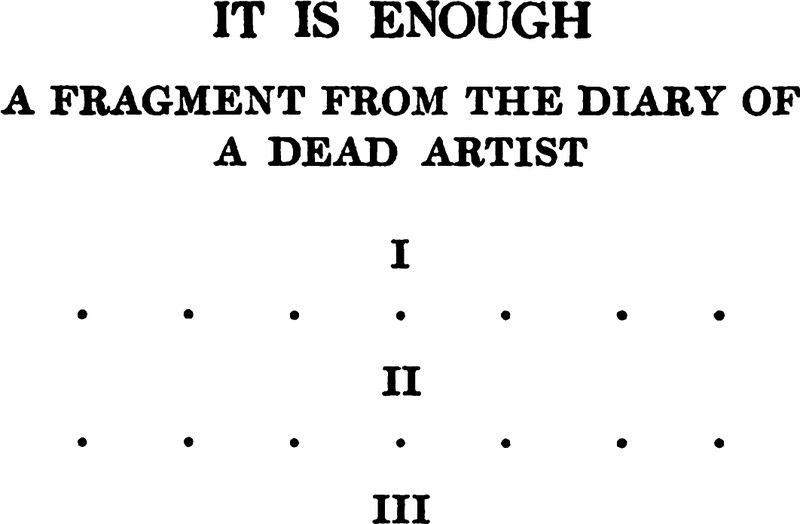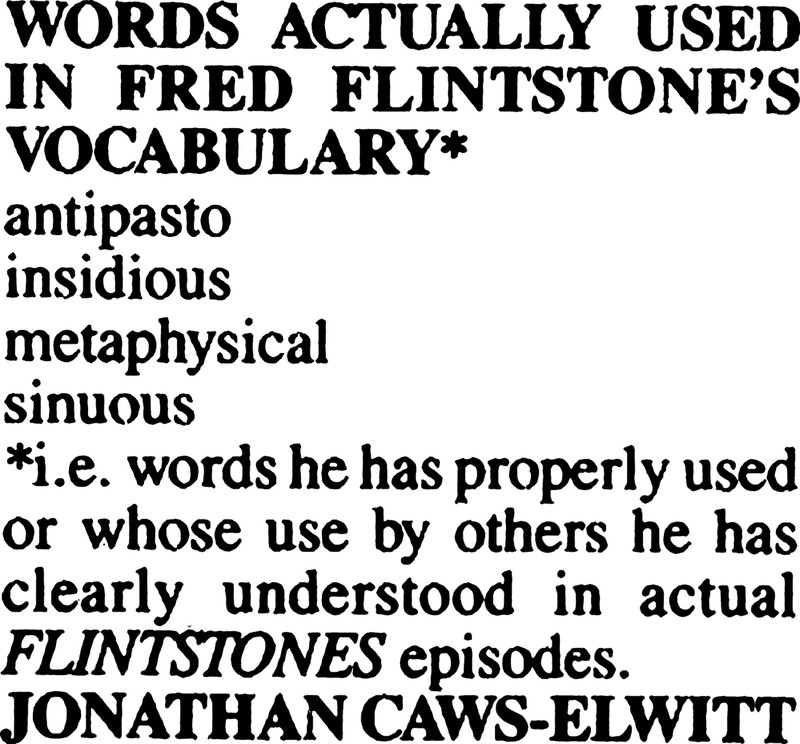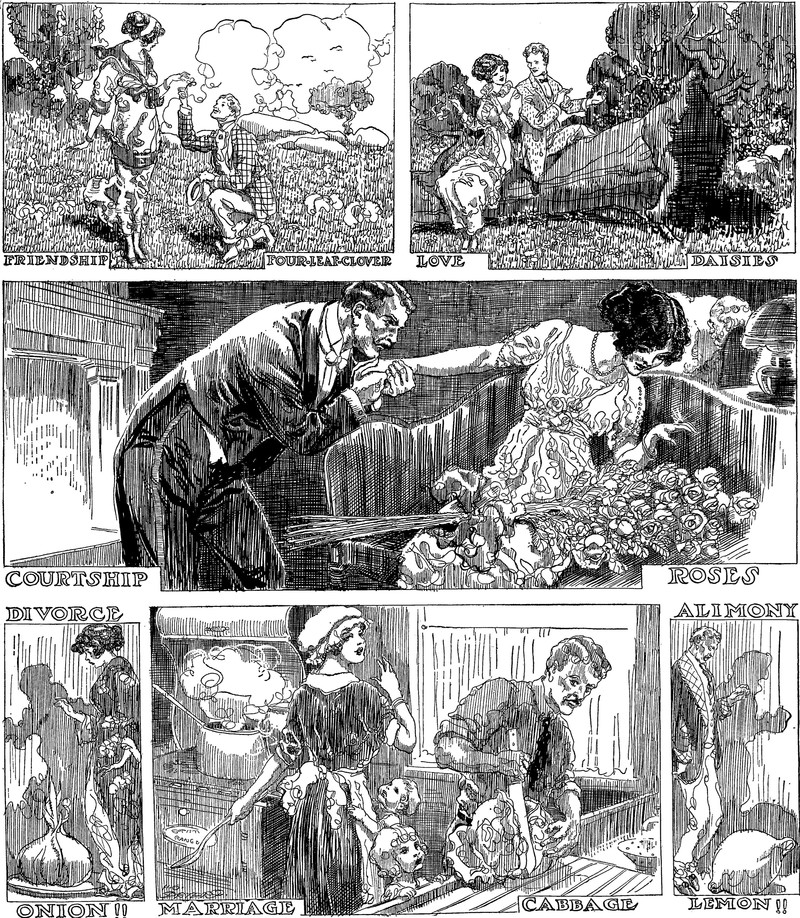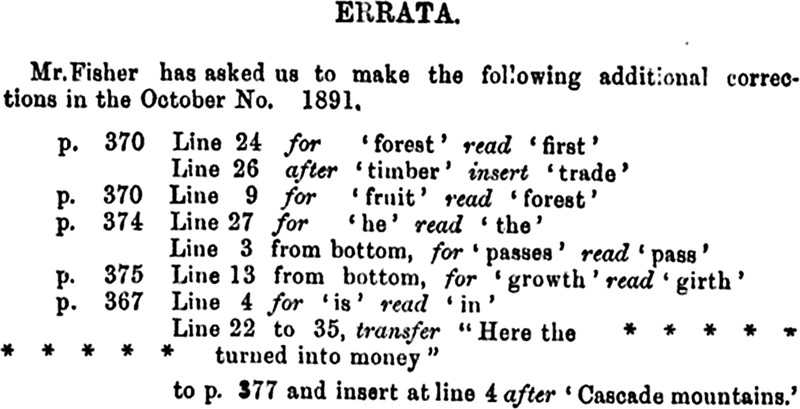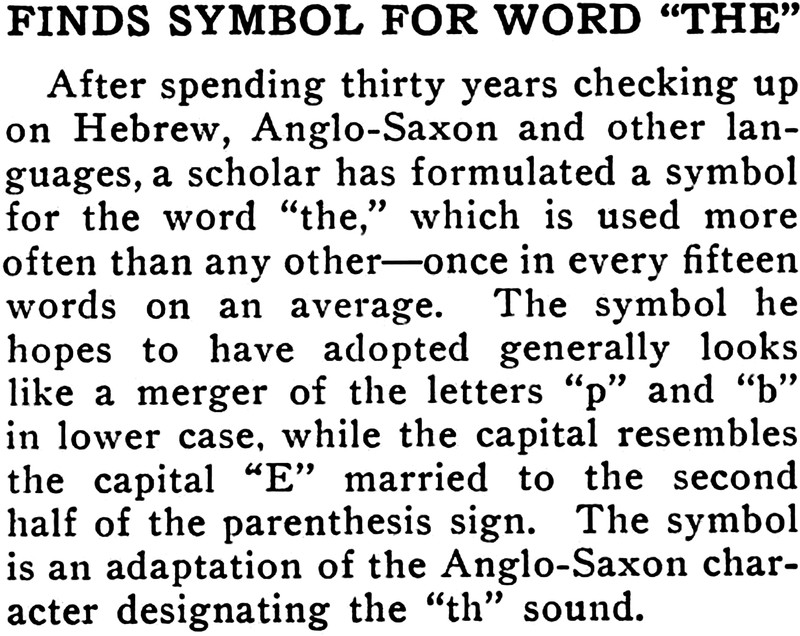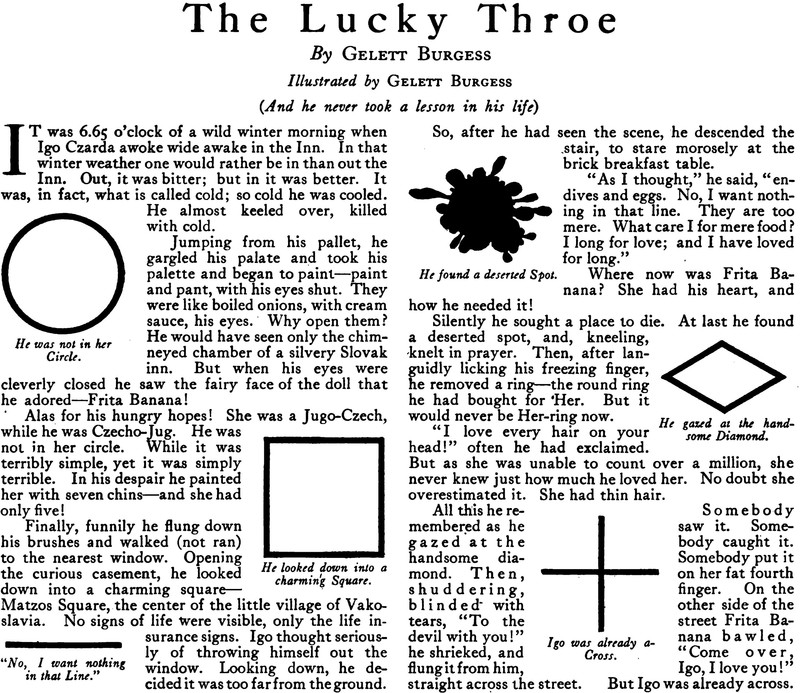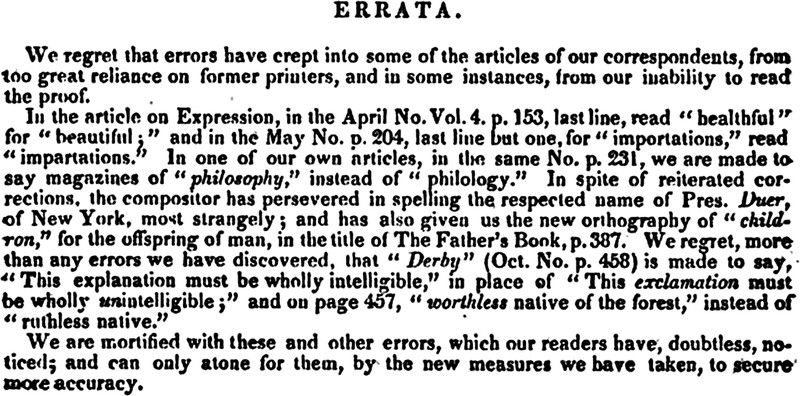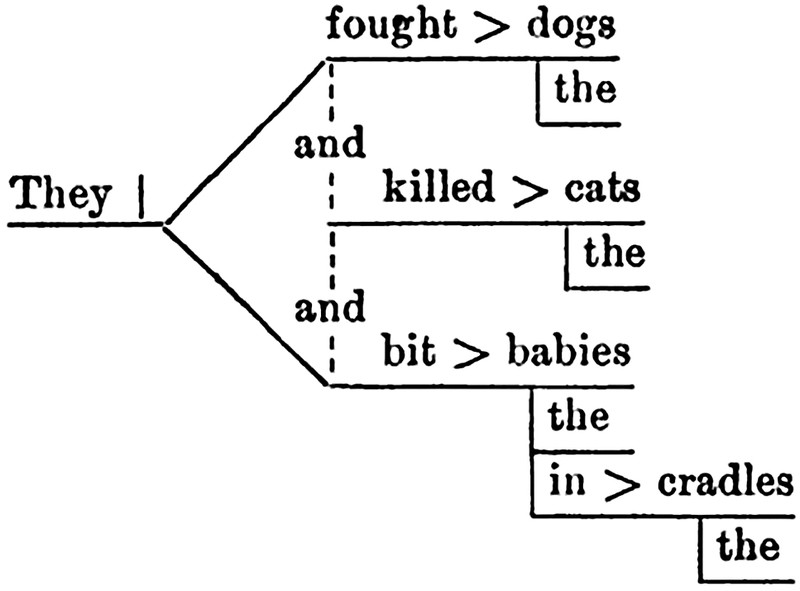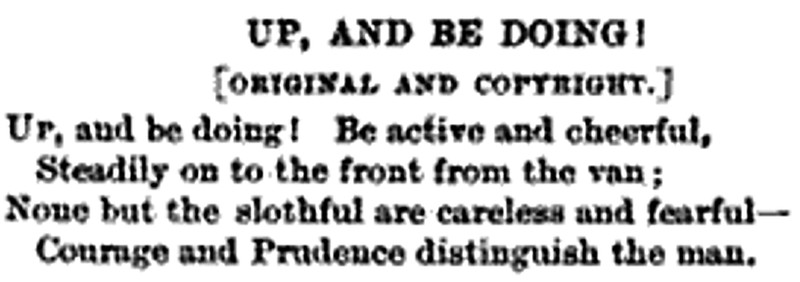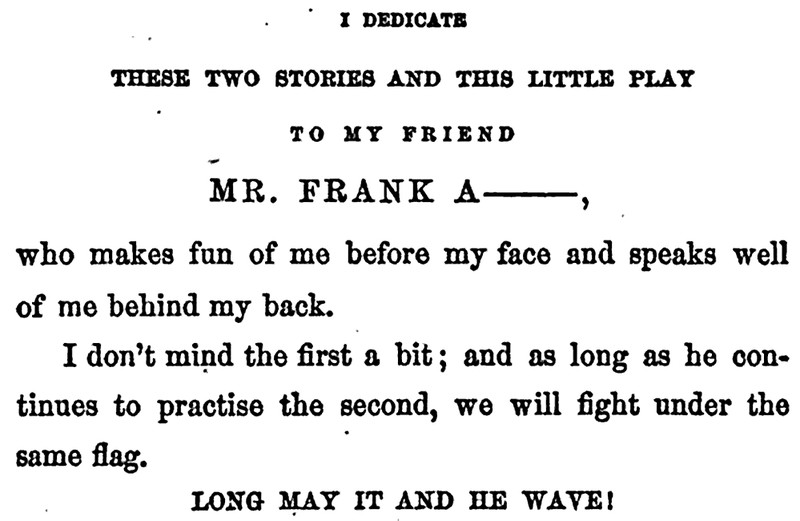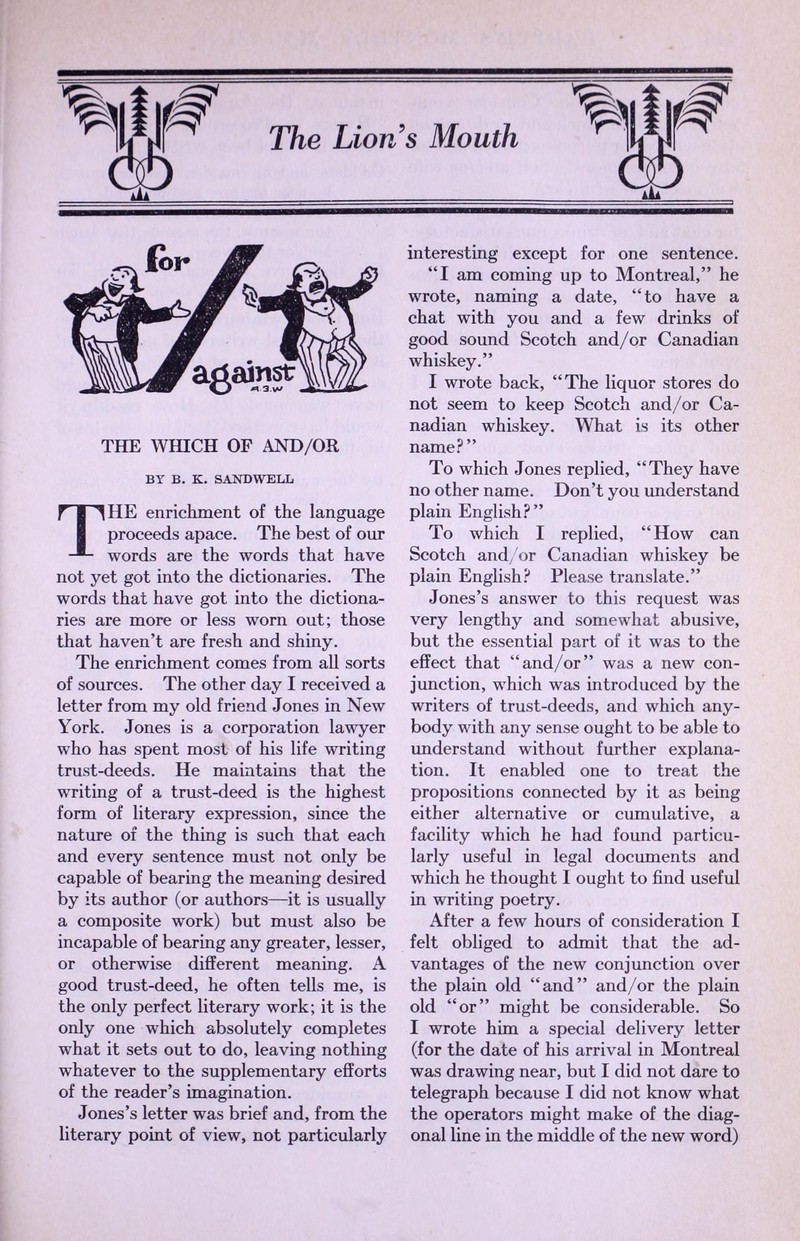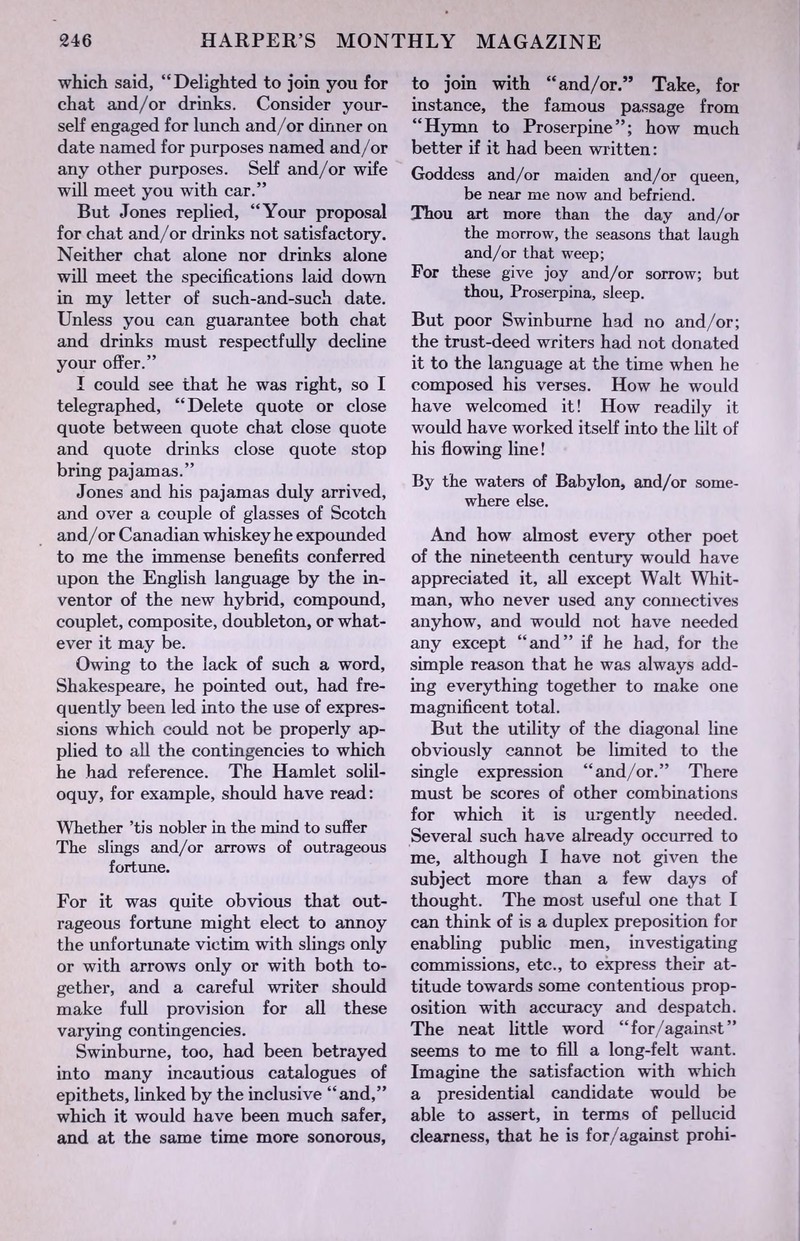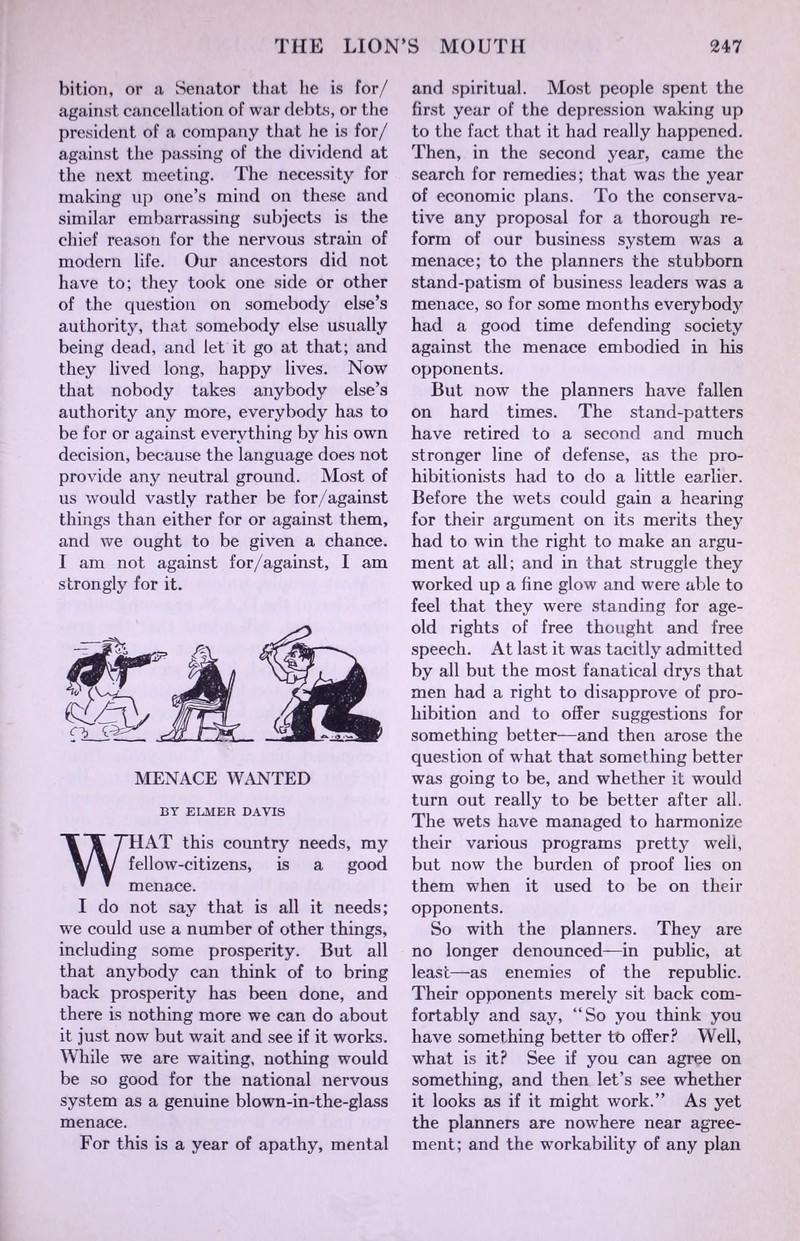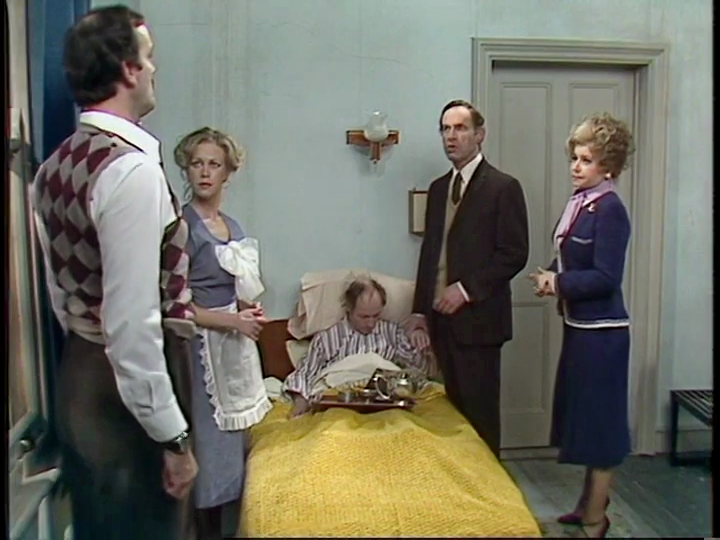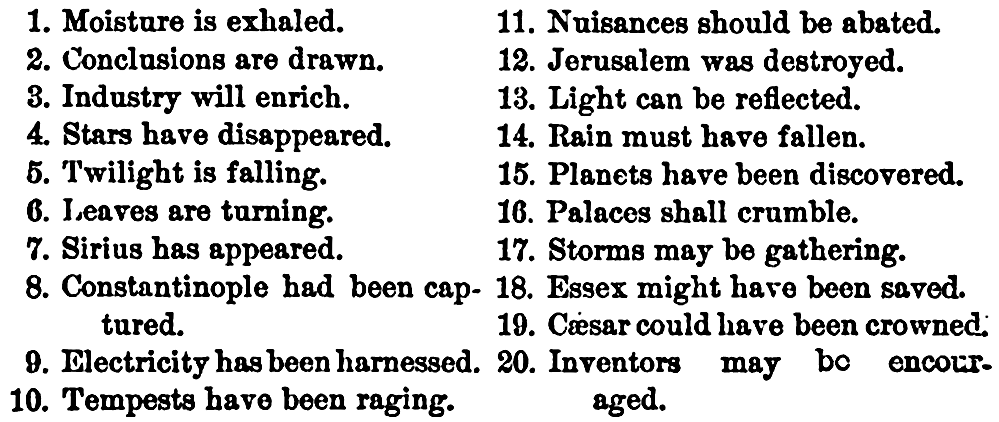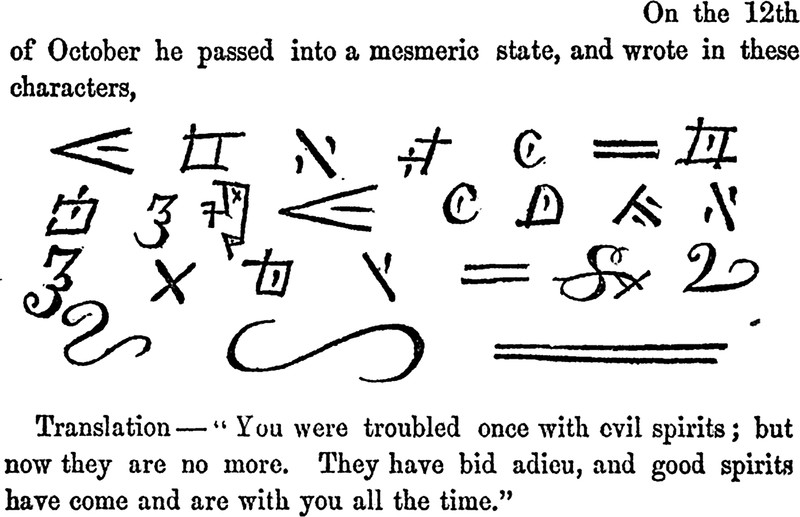|
|
 |
 |
 |
Here are some interpuncts translated by Isabel F. Hapgood for "It Is Enough" by Iván Turgénieff, 1915.
|



 |
If, in the language of flowers, friendship is a four-leaf clover, love is a daisy, and courtship is a rose, then divorce is an onion, marriage is a cabbage, and alimony is a lemon. From The Judge, 1913.
|





 |
For "tomb," substitute "turf." From Leigh Hunt's London Journal, 1835.
|









 |
|
|
 |
 |
 |
The "oldest inhabitant," not the "quietest" — a correction from Harper's Bazaar, 1911. This recalls a scene in Fawlty Towers, in which a dead man is assumed to merely be quiet.
|



Page 39 of 74

> Older Entries...

Original Content Copyright © 2025 by Craig Conley. All rights reserved.
|



